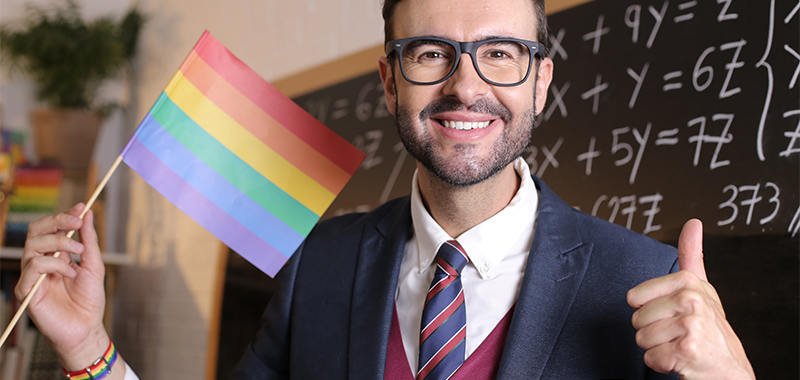
LGBT Activists demand influence in schools after Canadian ‘conversion therapy’ ban
| by James Kennedy James works in public affairs for The Christian Institute and is part of the Let Us Pray campaign. |
LGBT Activists in Canada have asked for “representation at every table” following the introduction of a sweeping ‘conversion therapy’ ban.
In a letter to Nova Scotia’s Department of Education and Early Childhood Development, they demand access and influence in every place where “decisions are being made that can affect the education and well-being of children”.
The group also asks for the retraining of school staff and updating of resources in light of the new law.
“Representation at every table”
The conversion therapy law was put forward as a means of preventing abusive or coercive practices from taking place in any settings. LGBT groups claimed that some people were forcing others to denounce homosexuality or their chosen gender.
The law has been framed in a dangerously broad way, however. The Evangelical Fellowship of Canada says the law could be interpreted “to ban sincere expressions of religious beliefs and teachings in sermons, courses of religious study and consensual pastoral counselling”.
It is apparent that the ban risks preventing those who disagree with LGBT ideology from speaking out.
It seems clear from this new letter that this is precisely what LGBT activists (who use the longer acronym ‘2SLGBTQIA+’ in Canada) have in mind. Their sights are firmly set on influencing the education systen, seeking to ensure their own ideology is the only one on offer.
Undoubtedly they will argue they only want to ensure pupils are made aware of the risks of dangerous treatments. But when schools want to prevent harmful or illegal harms like bullying, drugs, gambling or prostitution, it's not considered necessary to involve “first-voice representation”. Why is ‘conversion therapy’ so different?
Clearly the answer has something to do with the vagueness with which ‘conversion therapy’ is described. The law is not clear what sort of practices are now illegal. Lawmakers rushed through the Bill in Canada, failing to scrutinise the lack of proper definitions and its potential to infringe on key freedoms – particularly freedom of speech and freedom of religion.
So activists feel they have a role in educating the public about what the Bill means. Using an definition found nowhere in the legislation, the letter-writers say schools are not complying with a requirement to end “any practice or effort, explicit or implicit, that pressures a person to change their sexual orientation, gender identity, or gender expression”.
Their reading of the law is, in fact, so broad that the LGBT activists claim they must be involved to help schools “identify the ways that education systems, structures and the application of policies reinforce cis-gendered binary identities that contribute to the oppression of queer and transgender people”.
In other words, they think the new law requires Queer Theory to be embedded across the education system.
They seem to think that any education which does not whole-heartedly endorse and promote their thinking is a form of conversion therapy.
Indoctrination
The clear result of this line of thought is the indoctrination of young people into harmful ideologies, including dangerous views on gender and sex. Their involvement in educational decision making would see children inculcated into an illogical LGBT worldview from a young age. It is truly repressive and immeasurably damaging.
In the UK, where banning ‘conversion therapy’ is being promoted as a means of protecting a marginalised few, lawmakers must learn from the approaches of activists in jurisdictions which already have such laws. Not only are they unnecessary – since abuse and coercion are already illegal – but they are used to promote particular perspectives and influence impressionable young minds.
If there is any concern about the involvement of groups like Stonewall and Mermaids in public life, a ban that emboldens their position must be approached with extreme caution.
We must not hand them a seat “at every table where decisions are being made that can affect the education and well-being of children”.
Sex Matters responds to Stonewall’s ludicrous “conversion” claims
2025-05-14 07:17:58
